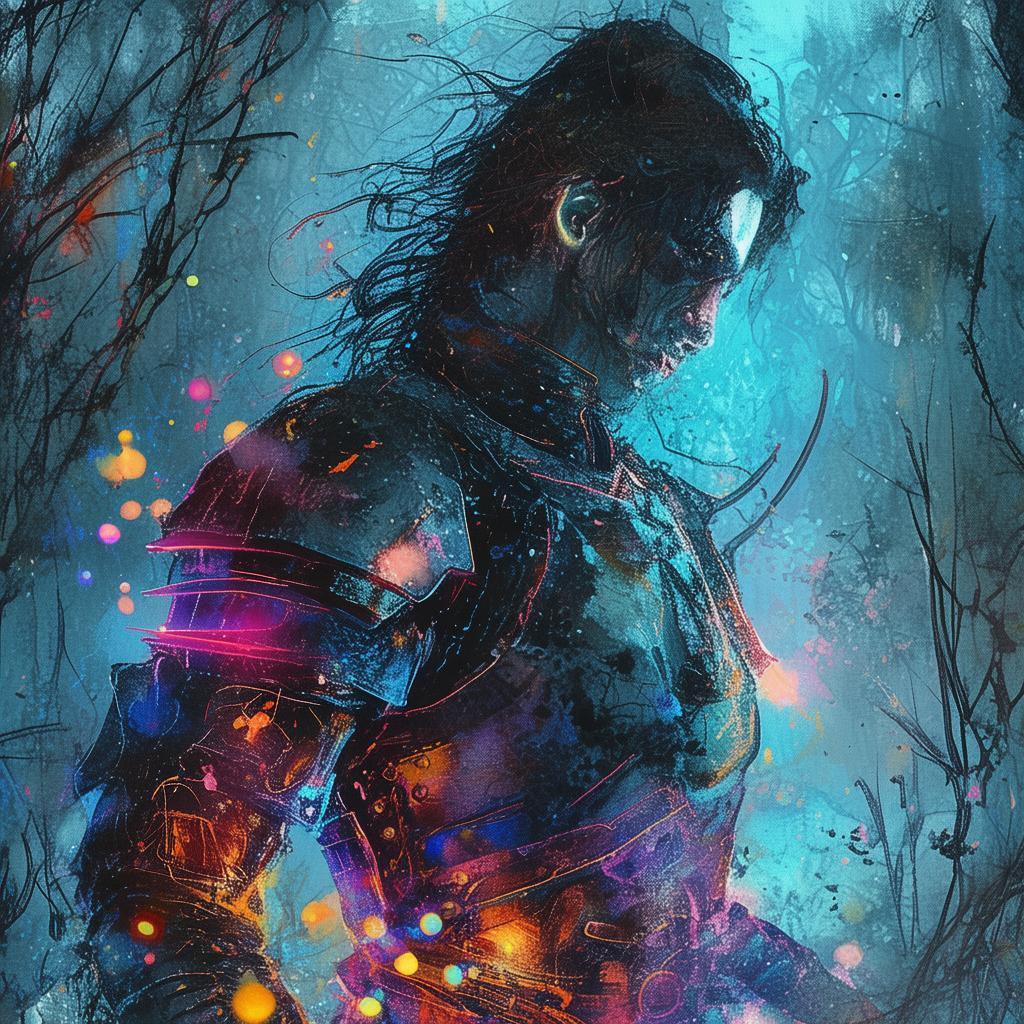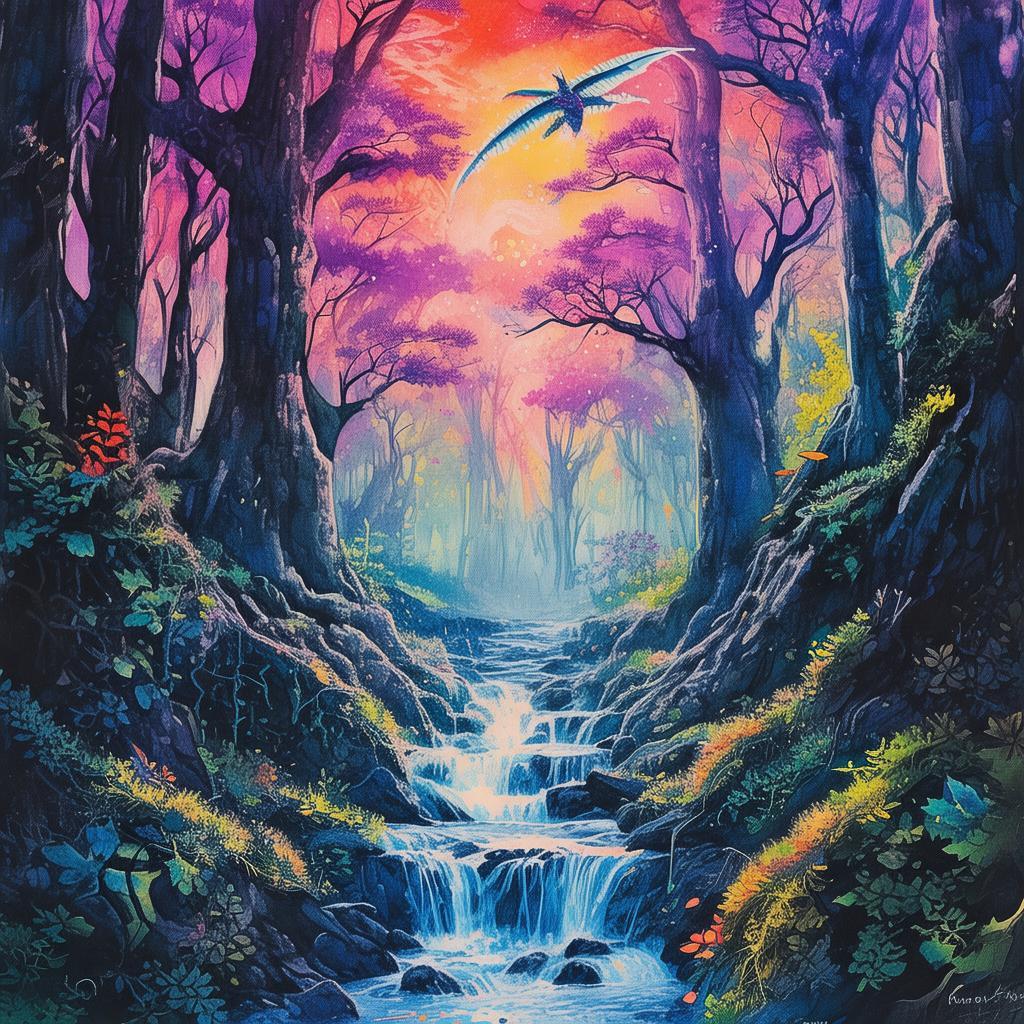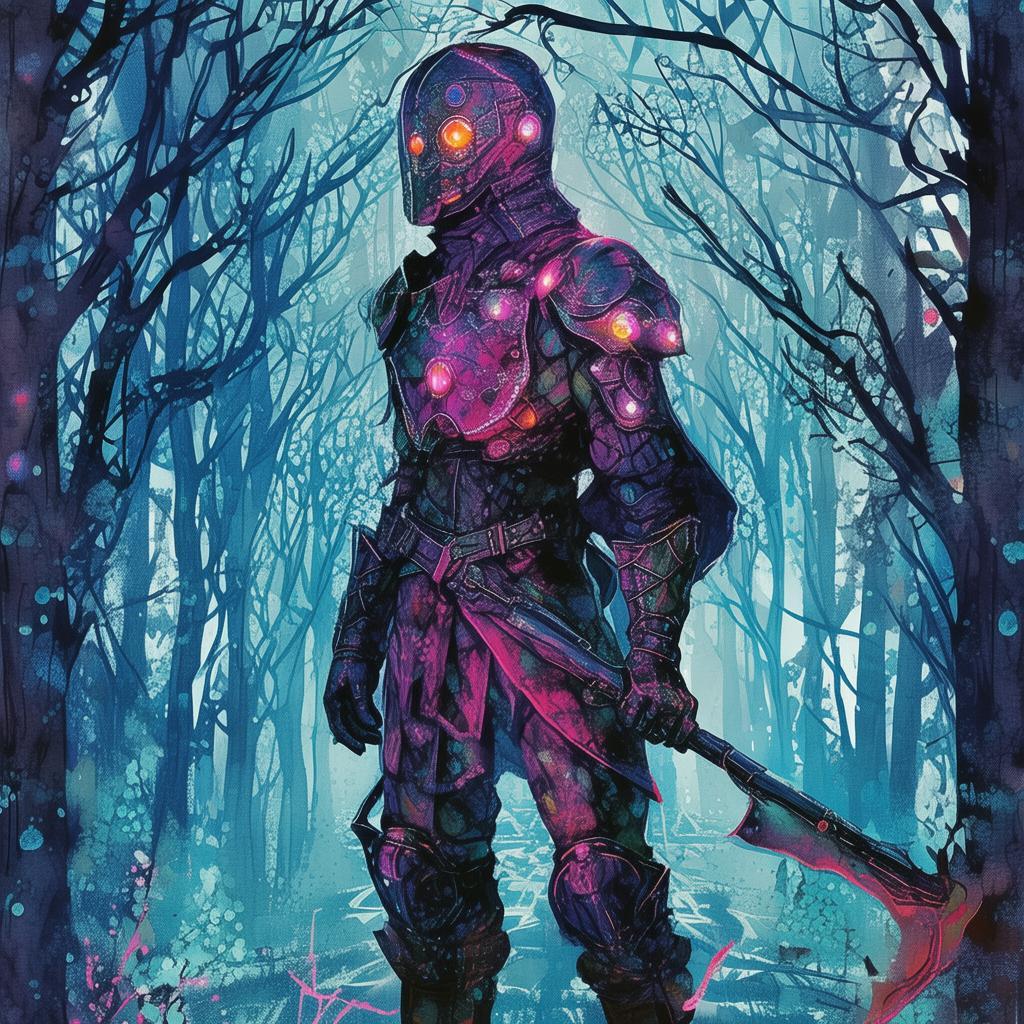The Echoes of the Forgotten: A Guardian's Reckoning
In the ancient city of Liang, nestled between rolling hills and the whispering winds of the Great River, lay the Grass Hall Temple. It was said to be the resting place for the souls of the departed, a place where the Guardian of the Soul, an ethereal figure cloaked in shadows, oversaw the passage of the departed to the afterlife.
The temple itself was a marvel of architectural beauty, with its walls covered in intricate carvings depicting the cycles of life and death. The Guardian resided in the heart of the temple, a chamber known only to the most fervent of believers—a place where the essence of a soul was judged and sent on its final journey.
Among the guardians of the past, there was one who had stood apart from the rest. His name was Ming, and he was known not only for his unwavering dedication to his duties but also for the darkness that seemed to permeate his essence. Ming's story was one of intrigue, sorrow, and the relentless pursuit of redemption.
Ming had been chosen for the role of the Guardian of the Soul after a life filled with turmoil and sacrifice. His parents had been killed in a violent uprising, leaving him an orphan raised by the temple's monks. They instilled in him the belief that he was destined for greatness, that he would become the guardian who would ensure that no soul would be lost in the afterlife.

As the years passed, Ming rose through the ranks of the guardians, his power and influence growing with each soul he judged. However, the weight of his past began to consume him. He found himself drawn to the shadows, to the places where the departed were most vulnerable. Ming sought out those whose lives were filled with sorrow and regret, knowing that their souls would be easier to guide.
One fateful night, as Ming sat in his chamber, the temple's bells tolled the hour of reckoning. A soul entered the temple, weak and weary, their life marked by suffering and despair. Ming's heart ached for this soul, but his duty was clear. He rose and approached the soul, his eyes darkening with the knowledge of what lay ahead.
As he spoke the incantations, the soul began to tremble, their essence swirling before Ming. But as he prepared to send the soul on its way, a voice echoed through the temple, a voice that Ming had thought long forgotten.
"It is not your time to judge," the voice said, its tone both commanding and familiar. Ming turned to see an apparition of his past, a younger version of himself, standing before him. "You have been chosen for a greater purpose."
The apparition explained that Ming had been chosen not only to guard the souls of the departed but to confront his own darkness. The soul before Ming was a manifestation of his own past, a soul that needed him to understand and forgive himself.
In a moment of profound clarity, Ming realized that the darkness within him was a reflection of the sorrow and pain he had carried for so long. He understood that true redemption could only come from forgiving himself and accepting his past.
With the realization came a newfound strength. Ming embraced the soul, their essences intertwining in a dance of light and shadow. The darkness within Ming began to fade, replaced by a sense of peace and purpose.
As the temple bells tolled once more, the soul was no longer a manifestation of Ming's past. It was a free spirit, released to the afterlife by the guardian who had finally found his redemption.
Ming stood before the temple's altar, his heart filled with a profound sense of release. He realized that his journey as the Guardian of the Soul was not merely about judging others but about understanding and healing himself.
From that day forward, Ming's presence in the Grass Hall Temple became one of light, his judgments guided by a heart that had finally found peace. The temple's monks and visitors alike felt the change in him, and they spoke of the guardian who had found redemption in the shadowed halls of the afterlife.
And so, the legend of Ming, the Guardian of the Soul who confronted his own demons, spread throughout the land. It became a tale of hope and redemption, a reminder that even the darkest souls could find light in the end.
✨ Original Statement ✨
All articles published on this website (including but not limited to text, images, videos, and other content) are original or authorized for reposting and are protected by relevant laws. Without the explicit written permission of this website, no individual or organization may copy, modify, repost, or use the content for commercial purposes.
If you need to quote or cooperate, please contact this site for authorization. We reserve the right to pursue legal responsibility for any unauthorized use.
Hereby declared.








